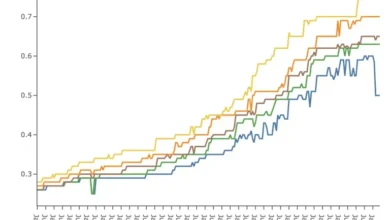Oregon DEI Initiatives: Standing Strong Against Trump’s Threat

Oregon DEI Initiatives represent a crucial commitment to advancing diversity, equity, and inclusion within the state’s education system. As the forefront of Oregon education, these initiatives aim to provide all students with equal opportunities, reflecting Governor Tina Kotek’s dedication to civil rights education. Despite pressures from the federal government to abandon these programs in light of federal funding education conditions, Oregon leaders stand firm in their resolve. The state’s education director, Charlene Williams, emphasizes that cutting DEI initiatives would be detrimental to Oregon’s values and the educational system itself. In the face of adversity, Oregon DEI Initiatives showcase a resilient approach that prioritizes inclusivity and equitable access to resources for all students.
In the ongoing discourse surrounding education, the commitment of Oregon to advancing principles of diversity, equity, and inclusion stands out as a model for other states. These educational frameworks not only aim to enhance civil rights education but also seek to secure federal funding education amidst evolving federal guidelines. Governor Tina Kotek’s unwavering support suggests a strategic focus on enabling every student to reach their potential regardless of background. The initiatives reflect a deeper understanding of the importance of inclusive practices as essential for a well-rounded education. As this discourse unfolds, Oregon’s proactive stance offers significant insights into safeguarding educational values against external pressures.
Oregon’s Commitment to DEI Amid Federal Funding Pressures
Oregon’s commitment to diversity, equity, and inclusion (DEI) initiatives remains resolute despite the recent threats from the federal government over funding. Governor Tina Kotek emphasized the state’s unwavering stand against the Trump administration’s demands, reaffirming that Oregon’s educational priorities align with its values of inclusivity and equal opportunity. This approach not only reflects the state’s commitment to providing high-quality education for all students but also represents a broader commitment to fostering an inclusive environment in schools across the state.
In her correspondence with federal officials, Education Director Charlene Williams communicated Oregon’s position clearly: the state will not acquiesce to pressures that could jeopardize the future of its educational programs. The intersection of federal funding education and civil rights education plays a crucial role here. The state aims to protect its funding, which supports low-income students, while competing against national politics that seek to undermine these essential DEI initiatives.
The Role of Federal Funding in Supporting Oregon’s Education System
Federal funding has been a lifeline for Oregon’s public education system, contributing significantly to resources needed for a diverse student population. Title I funds alone, amounting to approximately $134 million, play a vital role in supporting educational initiatives that aid over 200,000 students from low-income families. These resources not only enhance educational outcomes but also demonstrate Oregon’s commitment to using federal resources to bolster its diversity, equity, and inclusion programs.
Critics argue that the potential withholding of Title I funds poses a direct threat to these essential programs, creating a scenario where educational equity may be compromised. However, Governor Kotek and Director Williams assert that they will fight to protect these funds, abiding by the core principles of civil rights education to ensure that every child, regardless of background, receives the education they deserve. This confrontation highlights the ongoing tension between state educational policies and federal educational directives, particularly around civil rights.
Governor Kotek’s Strong Stance on Education Equity
Governor Tina Kotek’s leadership has been pivotal in steering Oregon’s education system through a turbulent federal landscape. Her proactive stance exemplifies the state’s resolve against external pressures that attempt to undermine its DEI initiatives. Kotek’s statement about safeguarding Oregon values underscores her commitment to ensuring that education remains accessible and equitable for all students, despite impending challenges posed by federal policies.
This strength is reflected in how Oregon has approached the potential loss of federal funding, showcasing a willingness to engage in legal battles to uphold its educational values. In her communications, Kotek has made it clear that depriving students of essential resources is unacceptable and that the educational path in Oregon will continue to focus on inclusivity and opportunity, supporting the spirit of diversity equity inclusion even when faced with significant challenges.
Legal Challenges Surrounding Oregon’s DEI Initiatives
The battle over Oregon’s DEI initiatives is not just a local concern; it has escalated into a legal struggle involving prominent nationwide organizations such as the American Federation of Teachers and the American Civil Liberties Union. These lawsuits are significant as they attempt to clarify the legal parameters surrounding federal funding and civil rights education. By challenging the U.S. Department of Education’s directives, they hope to protect state autonomy over educational strategies that embrace diversity and inclusion.
In legal contexts, the arguments presented by Oregon officials point out that the federal education agency’s actions could violate existing civil rights laws and procedural regulations. This scenario highlights the critical importance of ensuring that policies do not restrict educational access or inhibit the pursuit of diversity initiatives. As Oregon navigates these legal complexities, the outcomes may dictate not just the future of DEI initiatives in the state, but also set precedents for other states facing similar pressures.
Impact of DEI Programs on Oregon’s Student Population
Diversity, equity, and inclusion programs are crucial for fostering an educational environment that addresses the needs of all students in Oregon. Research indicates that when students feel represented and included, they are more likely to succeed academically and socially. Programs designed to promote educational equity in Oregon schools, such as the Oregon Teacher Scholars Program, are essential in preparing culturally and linguistically diverse educators who can relate to and support the diverse student body.
Moreover, the emphasis on DEI promotes a more comprehensive curriculum that acknowledges and celebrates differences among students. This approach not only enriches the learning experience but also prepares future generations to thrive in an increasingly diverse and interconnected world. By continuing to invest in DEI initiatives, Oregon sets an example for other states, demonstrating that educational equity is not only a moral imperative but also vital for the state’s social fabric.
Oregon’s DEI Initiatives and Societal Benefits
The societal benefits of Oregon’s commitment to diversity, equity, and inclusion initiatives are profound. These programs foster understanding and collaboration among students from various backgrounds, breaking down barriers and misconceptions. By equipping students with the skills and knowledge to interact respectfully with diverse populations, Oregon is effectively preparing its youth for a diverse workforce and society.
Furthermore, inclusive education has a ripple effect in the community, promoting an environment where everyone feels valued and respected. This inclusivity leads to stronger community ties and a more cohesive society, essential in overcoming the challenges faced in today’s fragmented cultural landscape. Oregon’s dedication to DEI not only enhances the educational experience but also contributes to a more egalitarian society.
Future of Oregon’s Educational Policies Under Political Scrutiny
As political dynamics continue to shift nationally, Oregon’s education policies regarding diversity, equity, and inclusion face intense scrutiny. The ongoing dialogue about federal directives and their implications for state education raises critical questions about the future direction of Oregon’s schools. Governor Kotek has positioned the state to resist federal pressure, advocating for policies that reflect Oregon’s values rather than succumbing to external mandates.
The future of Oregon’s educational landscape will likely depend on the outcomes of ongoing legal disputes and negotiations with federal authorities. As state leaders create pathways to secure funding while advocating for DEI initiatives, they are also setting a blueprint for other states grappling with similar challenges. This focus on crafting resilient educational policies underlines Oregon’s commitment to maintaining an inclusive educational environment amidst political turbulence.
Community Engagement in Oregon’s Educational Reform
Community engagement is a vital component of Oregon’s approach to educational reform, especially concerning diversity, equity, and inclusion initiatives. By involving families, educators, and local stakeholders in discussions about educational policies, Oregon aims to create a robust support system that reflects the values and needs of its diverse population. Such engagement ensures that all voices are heard and that educational strategies align with community expectations.
In recent initiatives, Oregon has sought feedback and input from various community groups, particularly those representing marginalized voices. This grassroots approach not only strengthens the legitimacy of the state’s DEI efforts but also fosters a sense of ownership among community members. Engaging directly with constituents enhances transparency and accountability within the education system, ultimately leading to more effective and inclusive educational policies.
Resilience and Adaptability of Oregon’s Education System
Oregon’s education system demonstrates remarkable resilience and adaptability in the face of external pressures and changing political landscapes. As federal guidance continues to evolve, state leaders have shown a keen ability to adjust their strategies while remaining steadfast in their commitment to DEI principles. This adaptability is crucial not only for maintaining federal funding but also for fostering a supportive educational environment.
The ongoing commitment to DEI even in challenging circumstances signals to students and educators that inclusivity remains a fundamental aspect of Oregon’s educational mission. By continually assessing and evolving their educational approaches, state officials can effectively address emerging challenges while ensuring that the commitment to diversity and equity endures.
Frequently Asked Questions
What are the key Oregon DEI initiatives currently in place?
Oregon’s key DEI initiatives focus on promoting diversity, equity, and inclusion within public education. These initiatives aim to create an educational framework that supports marginalized groups, providing equitable opportunities for all students. Notable programs like the Oregon Teacher Scholars Program and the Educator Equity Act offer scholarships and set standards for increasing teacher diversity, aligning with the state’s education goals.
How is Governor Tina Kotek responding to federal threats against Oregon DEI initiatives?
Governor Tina Kotek has firmly stated that Oregon will not bow to federal demands to eliminate diversity, equity, and inclusion initiatives. In her response to the U.S. Department of Education’s funding threats, she reaffirmed Oregon’s commitment to safeguarding educational values that ensure every child, regardless of their background, has the chance to succeed.
What impact might federal funding cuts have on Oregon’s DEI programs?
Cuts to federal funding, particularly Title I funds, could significantly impact Oregon’s DEI programs, as approximately 10% to 14% of the state’s public education budget is derived from federal sources. This funding supports programs for low-income students, and losing it may hinder efforts to enhance diversity, equity, and inclusion in Oregon schools.
What legal actions are taking place regarding Oregon’s DEI initiatives?
Oregon’s Department of Education, under Charlene Williams, is currently involved in defending its DEI initiatives against legal challenges from the U.S. Department of Education. The state, along with other plaintiffs such as the American Federation of Teachers, is contesting the U.S. Department of Education’s directive that threatens funding based on compliance with federal civil rights laws related to diversity, equity, and inclusion.
How does Oregon ensure compliance with federal civil rights laws while promoting DEI?
Oregon ensures compliance with federal civil rights laws by aligning its DEI initiatives with regulations set forth under the Every Student Succeeds Act and the Individuals with Disabilities Education Act. The state education department regularly communicates with federal authorities to affirm adherence to these laws while advocating for diversity and equity in education.
What are the concerns surrounding Oregon’s DEI initiatives raised by some state lawmakers?
Some Oregon state lawmakers, notably House Republicans, have raised concerns that the state’s DEI initiatives may be discriminatory, alleging that programs like the Oregon Teacher Scholars Program favor certain groups over others. They have requested federal investigations to examine these initiatives, questioning their compliance with civil rights laws.
What role do Oregon DEI programs play in supporting low-income students?
Oregon DEI programs are vital in supporting low-income students by ensuring equitable access to educational resources and opportunities. Title I funds, which constitute a significant portion of federal funding for Oregon, are directed toward enhancing educational equity for students from disadvantaged backgrounds, reinforcing the state’s commitment to diversity and inclusion in public education.
How can Oregonians get involved in supporting DEI initiatives in education?
Oregonians can support DEI initiatives by participating in local school board meetings, advocating for policy changes, and joining community organizations focused on educational equity. Engaging in public discussions and collaborating with advocacy groups can further amplify the efforts to promote diversity, equity, and inclusion in Oregon’s educational landscape.
| Key Points | Details |
|---|---|
| Oregon’s Stance on DEI Initiatives | Governor Tina Kotek and Education Director Charlene Williams reaffirmed commitment to DEI initiatives despite federal threats. |
| Federal Funding Threats | U.S. Department of Education warned states to end ‘certain DEI practices’ or risk losing Title I funding. |
| Response Timeline | Initial compliance deadline was April 3; extended to April 24 due to legal actions against the federal government. |
| Supporting Oregon Schools | Title I funding supports over 200,000 low-income students in approximately 40% of Oregon schools. |
| Legal Actions | Oregon’s Education Department involved in lawsuits over federal mandates affecting civil rights and funding. |
| Political Context | Oregon House Republicans requested a federal investigation into DEI programs, citing discriminatory practices. |
Summary
Oregon DEI Initiatives are firmly supported by Governor Kotek and Education Director Williams despite pressures from the federal government. They emphasize the importance of diversity, equity, and inclusion in education, serving the needs of over 200,000 low-income students. As legal battles unfold, Oregon aims to protect its educational values against threats that could jeopardize vital federal funding.




